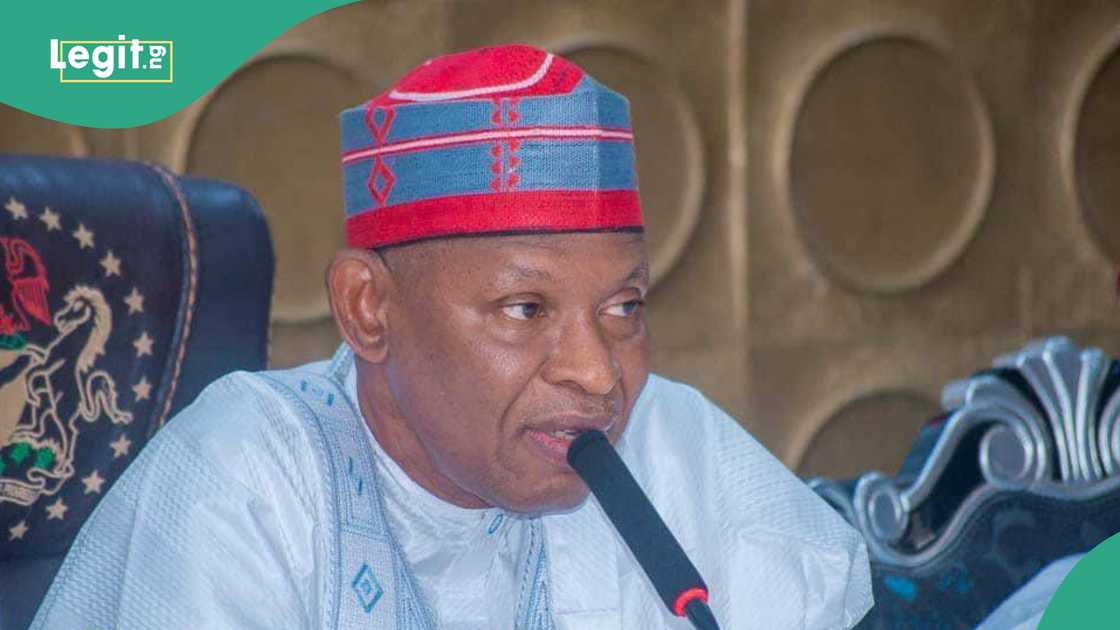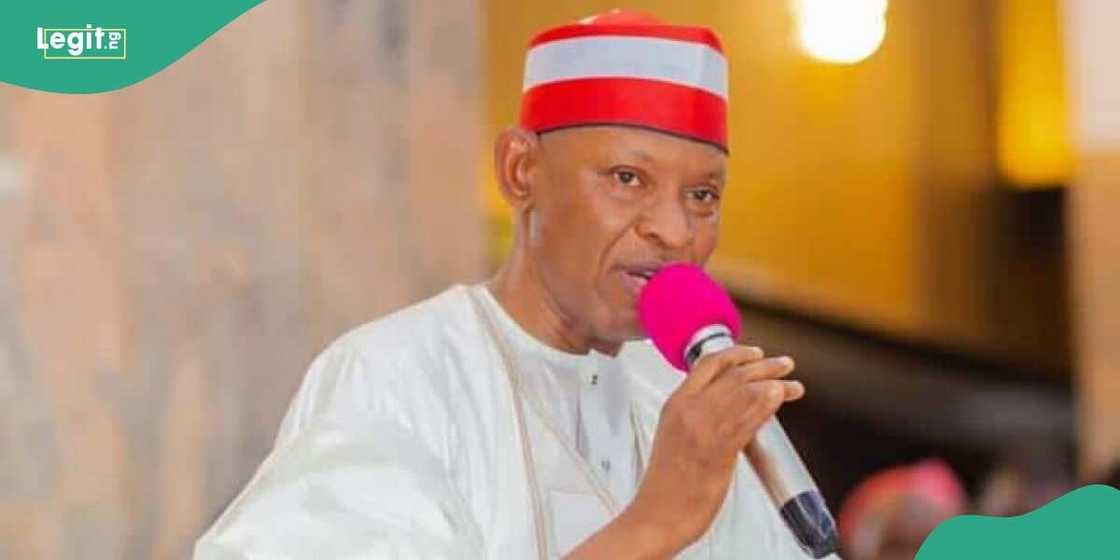Kano State has taken a significant legislative step as Governor Abba Kabir Yusuf formally submitted a bill to the State House of Assembly aimed at banning same-sex marriage and certain other acts the administration describes as “immoral.” This move reflects ongoing debates around social values and legal frameworks in northern Nigeria, as many local leaders strive to reinforce religious and cultural traditions.
The proposed bill goes beyond the prohibition of same-sex marriages, encompassing a range of activities and behaviors considered out of line with traditional beliefs in Kano. According to sources close to the statehouse, this legislative initiative comes as part of efforts to align Kano State’s legal statutes closely with the values rooted in Islam and Hausa-Fulani cultural heritage.
Speaking on the intent behind this legislative push, Governor Yusuf emphasized the administration’s commitment to preserving the teachings and ethics of Islam. “Our government will not compromise on these core values,” he asserted. As reported by Vanguard, the governor reaffirmed his view that Kano must remain steadfast in upholding its cultural and religious identity despite changing global social norms.
The announcement was made during the 31st State Executive Council meeting, which took place at the Government House Annex in Kwankwasiyya City, a stronghold of political and cultural influence in the state.
Further details were provided in an official statement issued by Sanusi Bature, Governor Yusuf’s spokesperson, on Friday, September 12, 2025. The statement confirmed that the bill specifically prohibits not only same-sex marriages but also behaviors and acts locally referred to as Madugo and Liwadi—terms denoting practices seen by authorities as contravening Islamic dictates.
“Under no circumstances will we allow acts that contradict our religion and traditions to take root in Kano. This government is duty-bound to protect the moral integrity of our society.
“Upon passage into law by the State Assembly, offenders found guilty of engaging in or promoting same-sex marriage and related practices will face strict legal consequences.”
Governor Yusuf expressed confidence that members of the Kano State House of Assembly would treat the bill with the seriousness and urgency it demands, given its perceived significance for the “moral and social well-being” of Kano’s residents.
Wider National Debate: Federal Government Clarifies Position on LGBT Issues
While Kano State pushes for tougher legislation at the local level, national discourse continues around LGBT rights in Nigeria. Recent weeks saw rumors circulating about the federal government’s role regarding LGBT issues—particularly in the wake of the Samoa Agreement, an international accord aimed at broad-based cooperation that some critics claimed might force Nigeria to alter its stance on such issues.
Responding to mounting speculation, the presidency issued a public clarification regarding Nigeria’s legal position. According to government spokespeople, Nigerian law remains supreme, and President Bola Ahmed Tinubu would not endorse any international agreement conflicting with national legislation or societal values. “There is no plan to introduce LGBT rights in contradiction to Nigerian law,” officials remarked, seeking to calm public concern.
The government reiterated its commitment to acting in the best interests of Nigerians, assuring that no foreign policy document—regardless of origin or language—could override statutes already set forth by the National Assembly.

Photo credit: Abba Kabir Yusuf
Source: Facebook
Legal and Social Context: Same-Sex Marriage Laws in Nigeria
Nigeria already has a national law prohibiting same-sex unions. The Same-Sex Marriage (Prohibition) Act, passed in 2014, criminalizes same-sex relationships and public displays of affection between persons of the same gender. Anyone found guilty may face up to 14 years in prison. Despite these stringent measures, several state governments—including Kano—are pushing for additional local legislation to reinforce compliance based on their unique religious and social contexts.
The state government’s renewed legislative drive is seen by supporters as an affirmation of Kano’s religious values. However, there are ongoing debates among legal scholars, human rights activists, and everyday citizens about the impact and reach of such laws. Critics contend that local and international human rights standards should be considered in policymaking, while supporters argue that the preservation of cultural identity is paramount.
Enforcement Actions: Recent “Gay Wedding” Arrests in Delta State
The debate over same-sex marriage is not confined to the legislative chambers. Enforcement actions are making headlines across the country, notably in Delta State, where police reportedly arrested over 100 individuals in connection with an alleged “gay wedding” held at a local hotel. According to official police statements, the event was in clear violation of existing laws banning same-sex unions and related ceremonies in Nigeria.
After the arrests, police paraded many of the male suspects, some of whom were reportedly dressed as crossdressers. Authorities stated that the crackdown was not just about enforcing the law but also about serving as deterrence to others.
These enforcement operations—widely circulated and discussed on Nigerian social media—have sparked discussions on both sides. Some citizens praise authorities for upholding cultural and legal standards, while others, including advocates for human rights, question the methods and motivations behind mass arrests and public shaming.
Kano’s Unique Cultural and Legislative Landscape
Kano, as one of Nigeria’s most populous and historically significant states, has a longstanding tradition of incorporating Sharia principles into its governance, particularly on social matters. Its legislative approach reflects not only religious doctrine but also the community’s values regarding marriage and acceptable public behavior. Proponents of the new bill believe local laws should be firm and specific, given Kano’s majoritarian Muslim population.
Local voices, like that of community leader Alhaji Musa Dantata, say, “Our laws must reflect our beliefs. When outsiders see our stance, they will realise Kano will not follow trends that go against our morals.” Yet, there are quieter debates on what these laws mean for personal freedoms, social harmony, and Kano’s relationship with the rest of Nigeria—and the world.
Human Rights Concerns and International Attention
The pushback against same-sex marriage in Nigeria has attracted the attention of international organizations and rights groups, who express concern over the tightening of legal and social constraints on LGBTQ individuals. Human Rights Watch and Amnesty International have repeatedly noted that legislation of this nature can foster discrimination and violence rather than promote societal peace or family stability.
On the other hand, many Nigerians argue that the nation’s laws must be rooted in its traditions and religious teachings, and that outsiders do not fully understand local contexts. “There must be a balance,” says Lagos-based lawyer Chika Okafor, “between preserving cultural heritage and ensuring basic rights for all citizens. The dialogue is complex and ongoing.”
The Road Ahead: What’s Next for Kano and Nigeria?
The fate of Kano’s bill now lies with the State House of Assembly, which must deliberate and potentially amend or approve the legislation. If enacted, it will reinforce existing national restrictions and set a tone for similar actions in other states. How these policies will affect the lives of everyday residents, the image of Kano, and Nigeria’s standing with the international community remains to be seen.
For now, Nigerians across the country—and West Africa as a whole—continue to watch both state-level and federal debates with keen interest, as questions about rights, culture, and the bounds of law play out in real time.
What do you think about Kano State’s legislative move and the wider discussion around same-sex marriage laws in Nigeria? Does the law reflect your own views, or do you feel there’s a need for dialogue about culture and personal freedom? Let us know your perspective in the comments below and don’t forget to follow our channels for ongoing coverage and updates!










